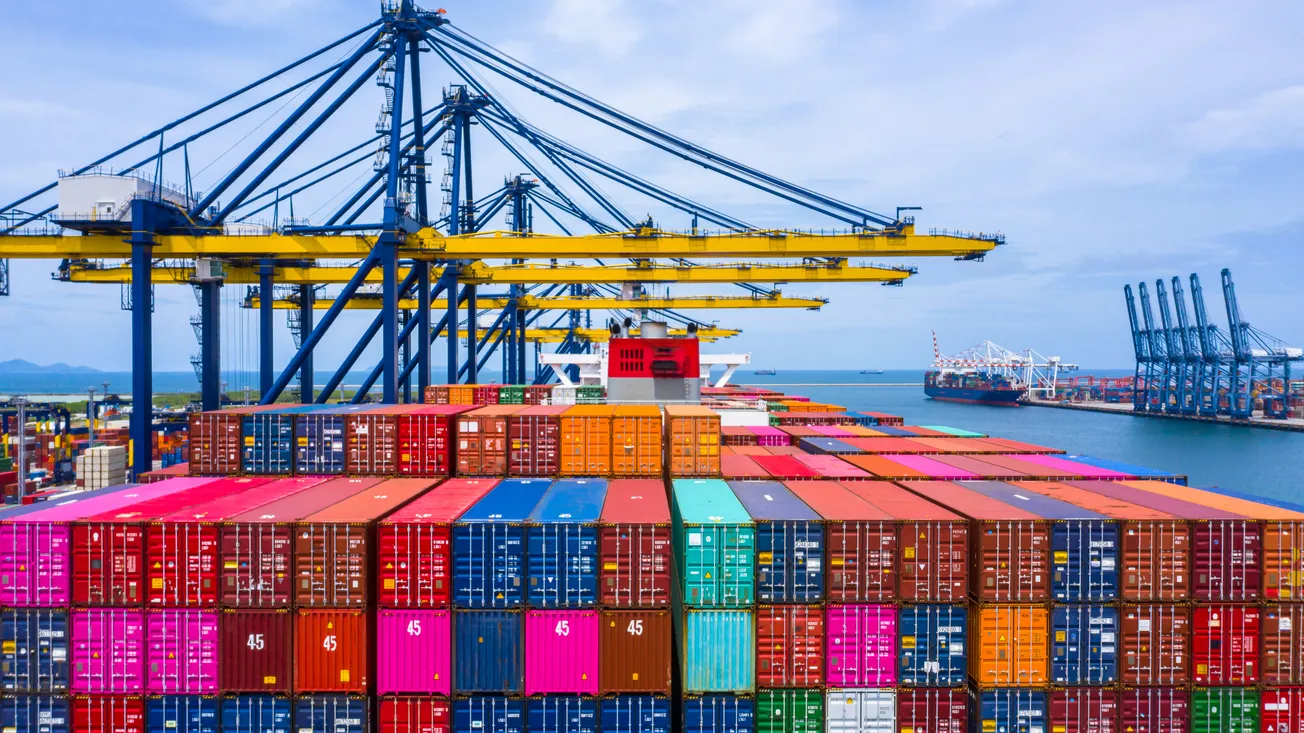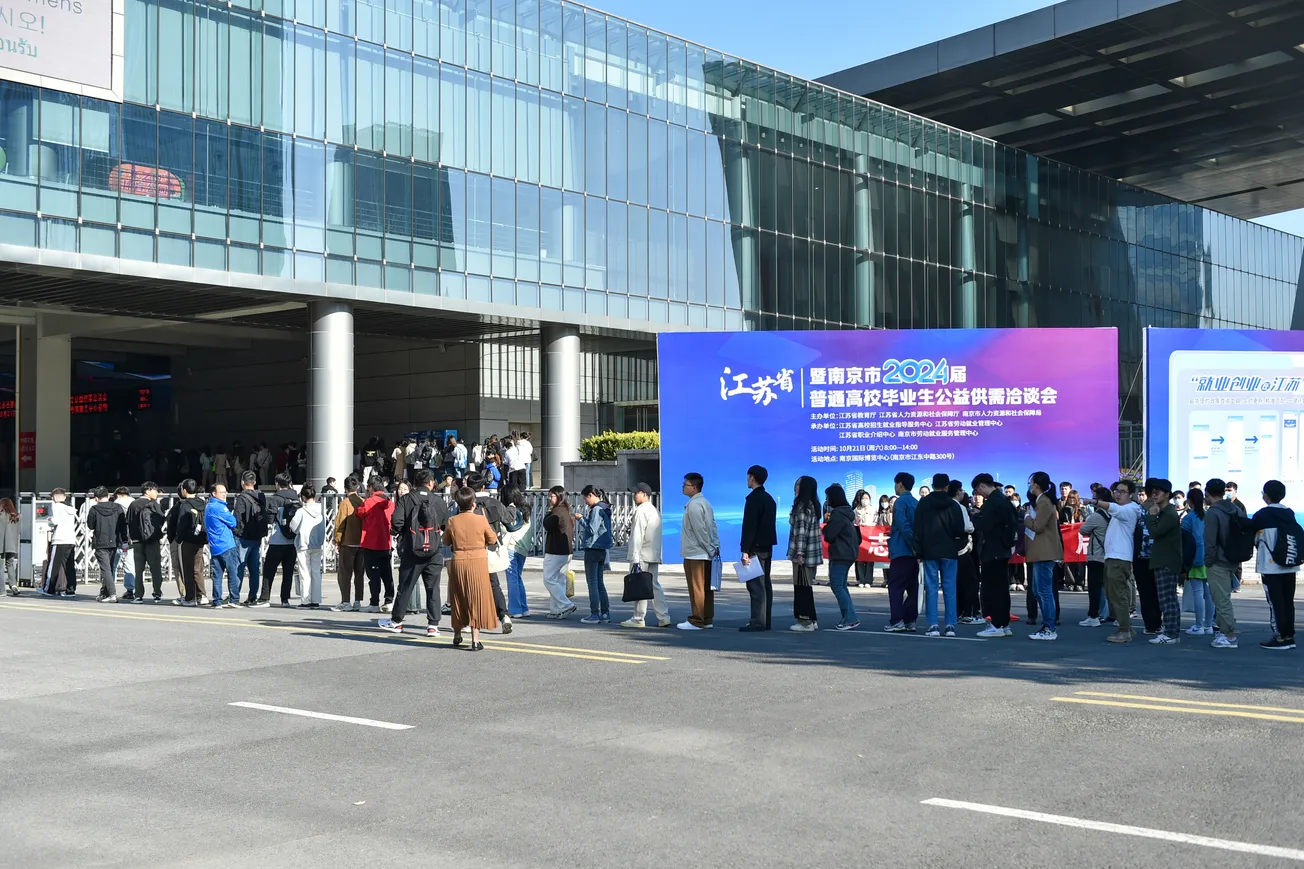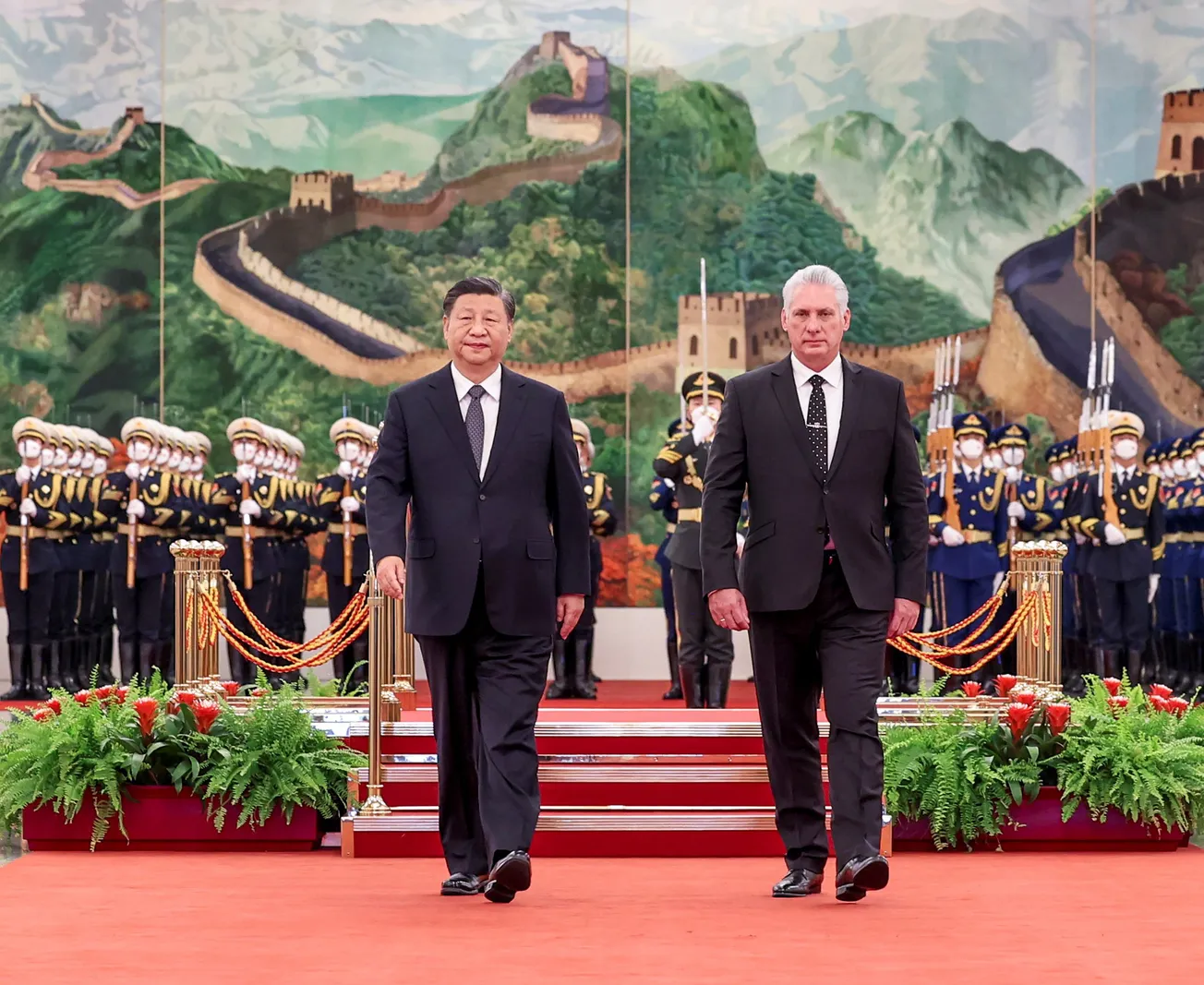In recent decades, Americans have shown strong support for the idea of free trade, based on the belief that they would benefit as much as or more than our trading partners did. But in recent years, as trade and geopolitical conflict with China grew and economic growth slowed, Americans' support for free trade has waned, as the latest I&I/TIPP Poll shows.
Given recent public debates over trade, the online I&I/TIPP Poll of 1,358 adults, taken from March 1-3, asked Americans three questions about current trade policy proposals. All come from recent proposals made by former President Donald Trump, as he presumably moves to run again for the presidency in 2024.
The results clearly showed a strong shift toward greater trade protection for domestic markets and workers, and a shift away from free trade.
The three questions all began identically, as follows: "Thinking about America’s trade and tax policy, please indicate the extent to which you support or oppose the following ideas:"
Respondents were then given three policy proposals to react to, including: 1) "Placing new tariffs on foreign goods;" 2) "Imposing strict controls on trade and investment with China;" and 3) "Cutting taxes for American workers and companies."
The available answers included "Support strongly," "Support somewhat," "Oppose strongly," "Oppose somewhat," and "Not sure."
Surprisingly, the answers showed a strong turn in favor of more protectionist measures for trade.
The first question, "Placing new tariffs on foreign goods," garnered 61% support, with 29% saying "strongly" and 32% saying "somewhat." Just 16% opposed the idea, with only 7% saying "strongly" and 9% "somewhat." Another 23% said they weren't sure.
Interestingly, Democrats and Republicans were identical in their responses, with 68% support from each. Independents, however, were less than a majority at 46% support, with 23% in opposition.
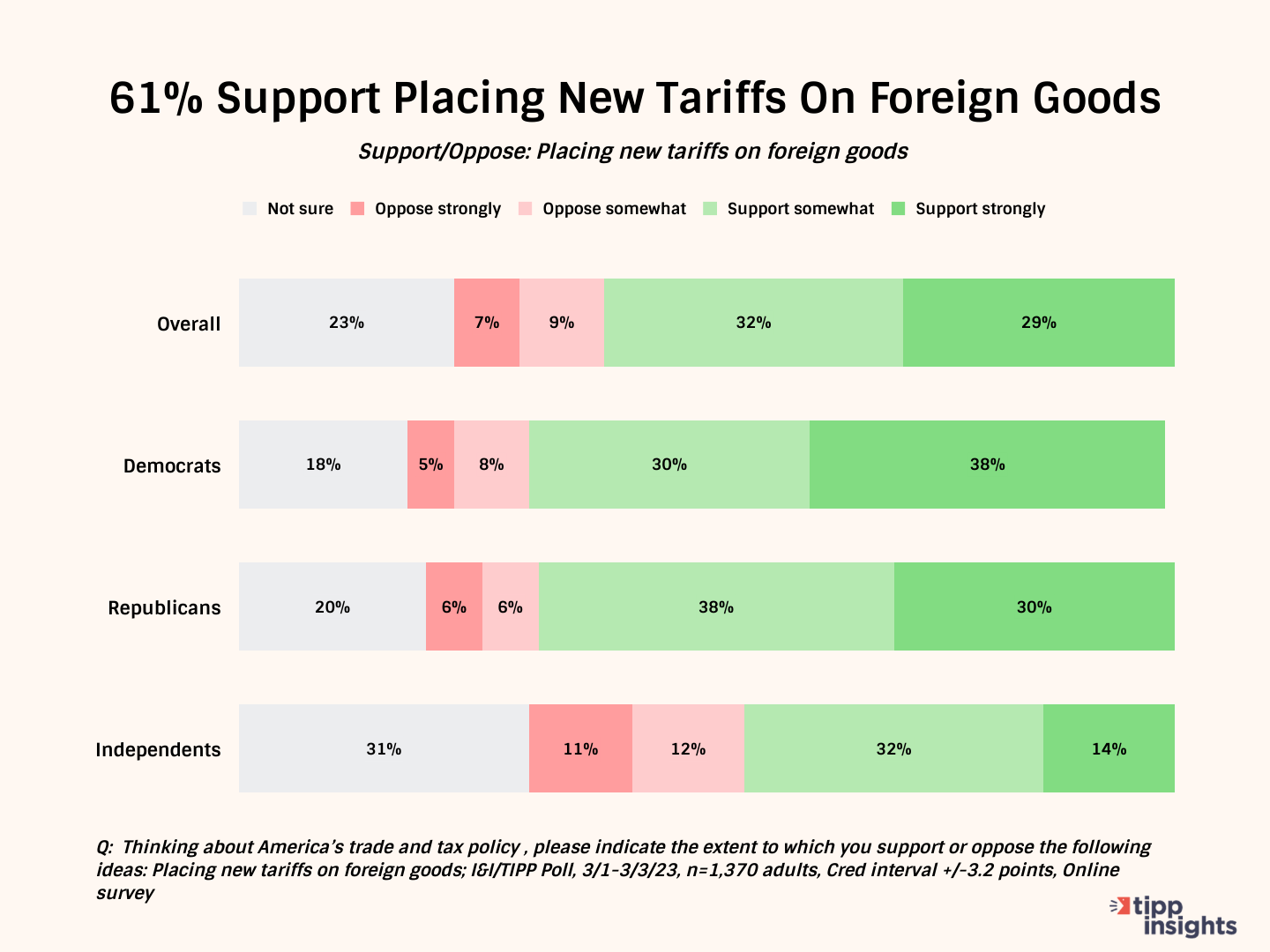
Similarly, the second question, which asked specifically about "imposing strict controls on trade and investment with China," 73% supported the idea. Among those, 41% said they supported trade restrictions with China "strongly," and 31% said "somewhat." Just 12% opposed the proposition, with only 6% saying "strongly." This time, 15% said they weren't sure.
On this question, too, Democrats and Republicans posted identical levels of support: 79%. Independents were lower but nonetheless a majority at 61%.
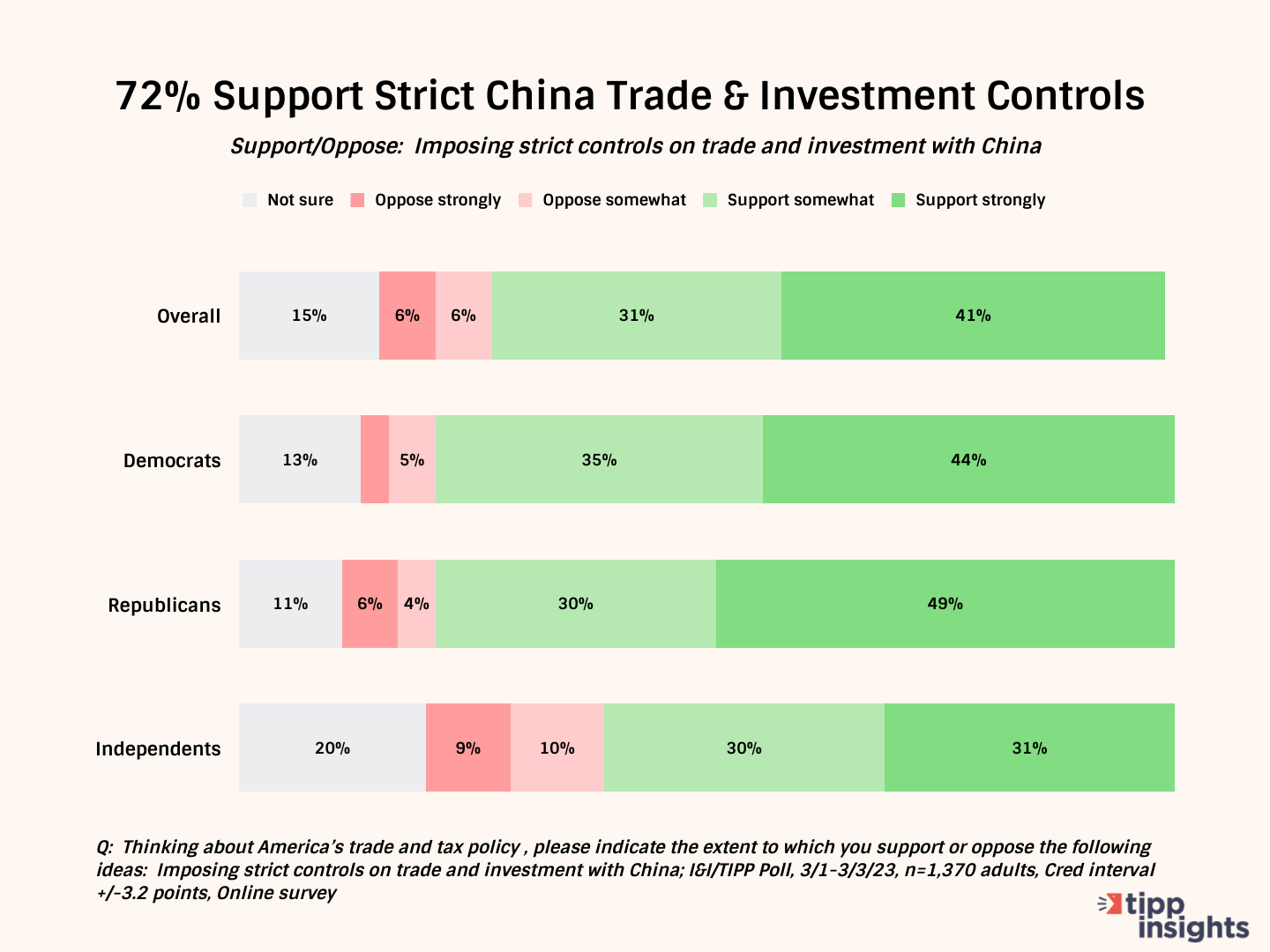
The final response was most popular of all: "Cutting taxes for American workers and companies." An overwhelming 78% supported it (48% strongly, 30% somewhat), while only 10% opposed it and 12% weren't sure.
And once again, Democrats (81%) and Republicans (84%) were strongly in favor of cutting taxes for workers and companies, with 70% of independents agreeing.
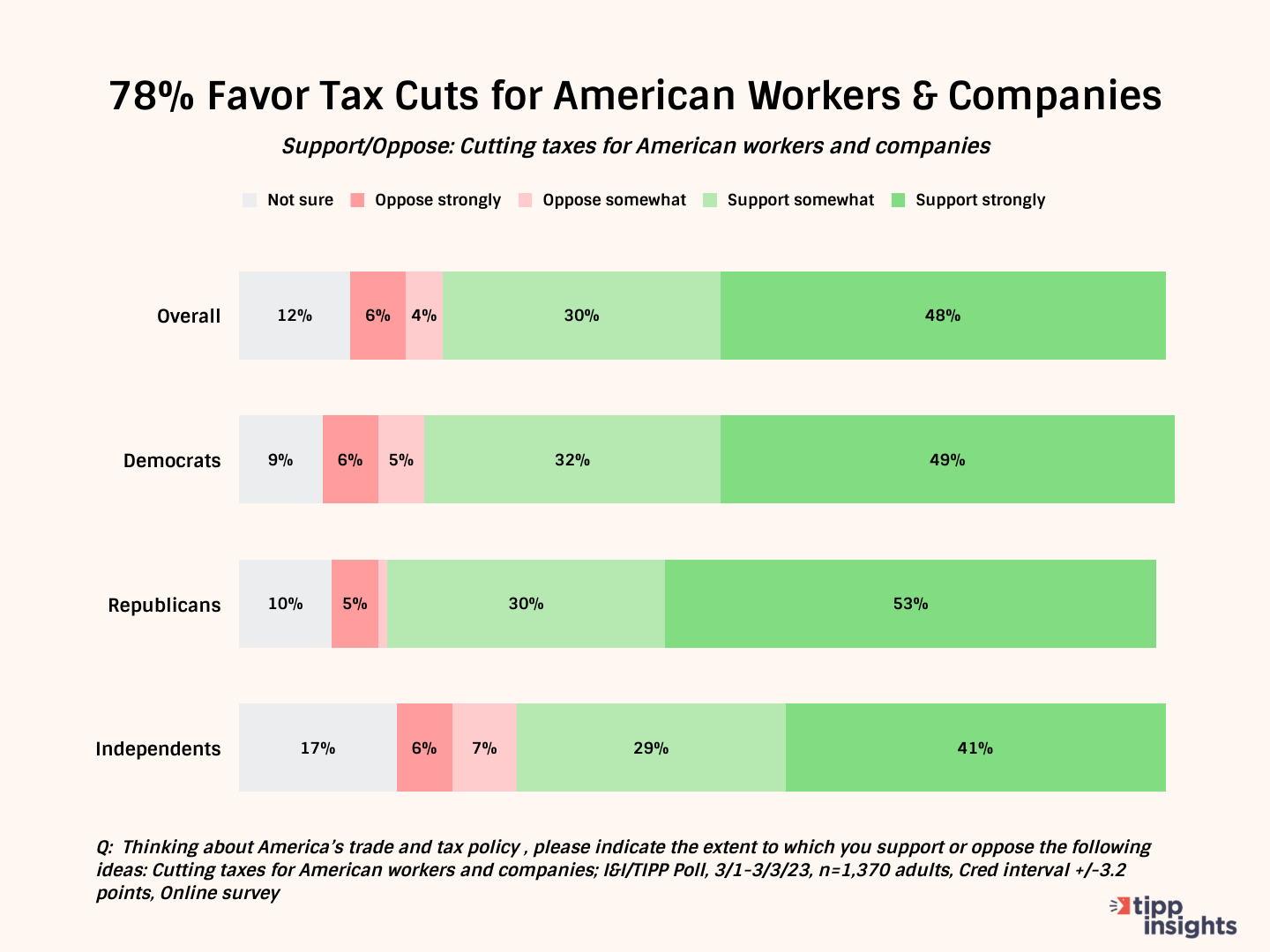
Why is this significant?
Let's begin with this: Economists of virtually all political stripes agree on one thing more than almost any other: free trade, based on comparative advantage, provides huge economic benefits. This has shown up repeatedly in surveys of economists, both on the left and the right, over the years.
Moreover, free trade has in recent decades been highly popular with average voters. Again, until relatively recently, national polls showed strong support for fewer trade barriers, and less support for protectionism. Free trade enjoyed broad support among both economists and average Americans as the best way to conduct our business with other nations.
The following poll headlines from recent years illustrate the trend: "Americans are generally positive about free trade agreements, more critical of tariff increases" (Pew Research, 2018); "Support for free trade reaches new high in NBC/WSJ poll" (NBC/WSJ, 2019); "Americans' Vanishing Fear of Foreign Trade" (Gallup, 2020).
But other polls suggest free trade no longer has such broad public support.
In fact, since Trump's time in office, we've seen a reversal of sorts for free trade, as revealed in a spate of headlines: "Amid Trump’s rise, GOP voters turn sharply away from free trade" (Politico-Harvard, 2016); "Sharply Fewer in U.S. View Foreign Trade as Opportunity" (Gallup, 2021).
So what does it say now that "free trade" appears to have been overtaken by Trump's (and others') idea of "fair trade," with the latter suggesting trade based on broad economic and social interests, and not solely on competitive advantage?
For one thing, it shows Trump's notions about trade have now become part and parcel of the Republican Party, once the most ardent advocate of free-trade ideals.
Compare GOP free-trade policies with what then-President Trump tweeted in 2018:
"I am a Tariff Man. When people or countries come in to raid the great wealth of our Nation, I want them to pay for the privilege of doing so. It will always be the best way to max out our economic power. We are right now taking in $billions in Tariffs. MAKE AMERICA RICH AGAIN."
In February, Trump unveiled his latest plan as part of his 2024 presidential campaign, called the Strategic National Manufacturing Initiative. It would, among other things, "tax China to build up America" (while imposing tariffs on other nations as well), and cut taxes on companies and workers in an effort to restore lost jobs and investment in America's once-dominant manufacturing sector.
However one might feel about him as a presidential candidate, Trump's ideas appear to have reshaped the political debate over trade. Further, the I&I/TIPP data suggest a disquieting trend for Democratic Party officials as another election looms: Trump's tax and trade beliefs also resonate with many Democrat voters, who now seem mostly in sync with the Republican's trade policies.
If so, the Democratic Party, which has mostly hewed to a globalist, free-trade vision, may find itself scrambling to keep dissatisfied blue-collar Democrats in the fold.
I&I/TIPP publishes timely, unique and informative data each month on topics of public interest. TIPP’s reputation for polling excellence comes from being the most accurate pollster for the past five presidential elections.
Terry Jones is an editor of Issues & Insights. His four decades of journalism experience include serving as national issues editor, economics editor, and editorial page editor for Investor’s Business Daily.
Want to dig deeper? Download data from our store for a small fee!
Like our insights? Show your support by becoming a paid subscriber!
Want to show your appreciation? Donate
Please email editor-tippinsights@technometrica.com

